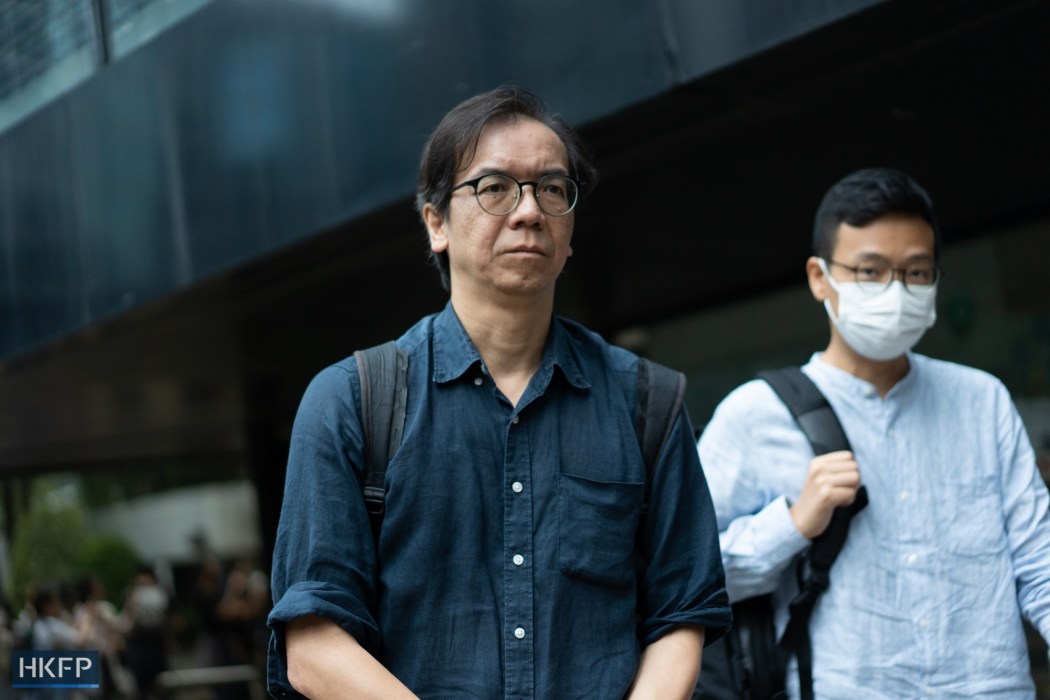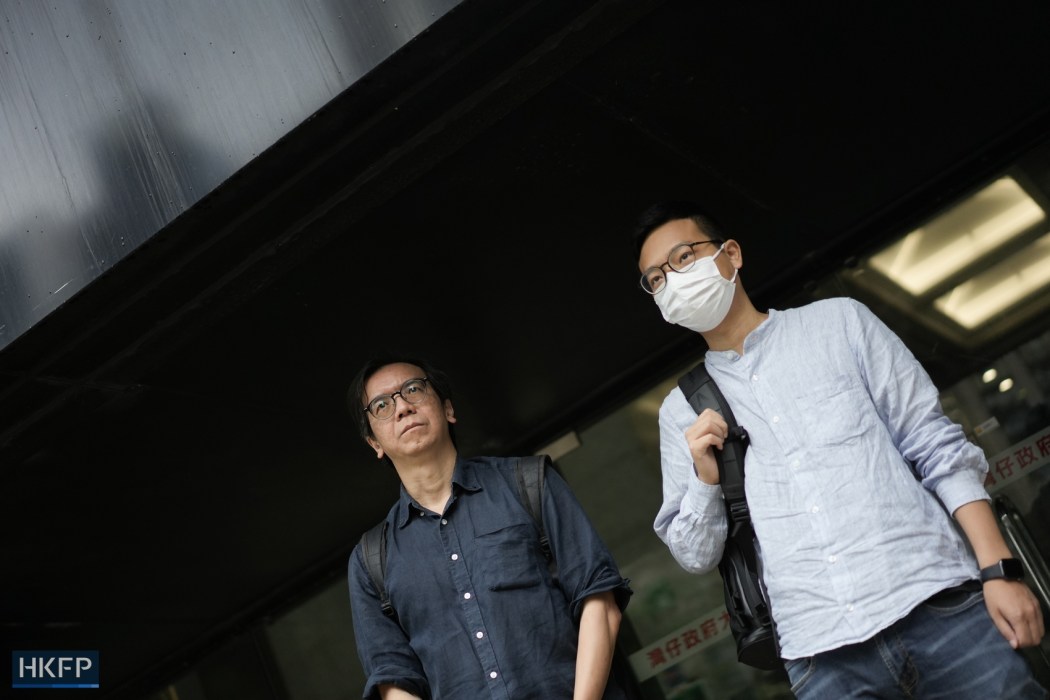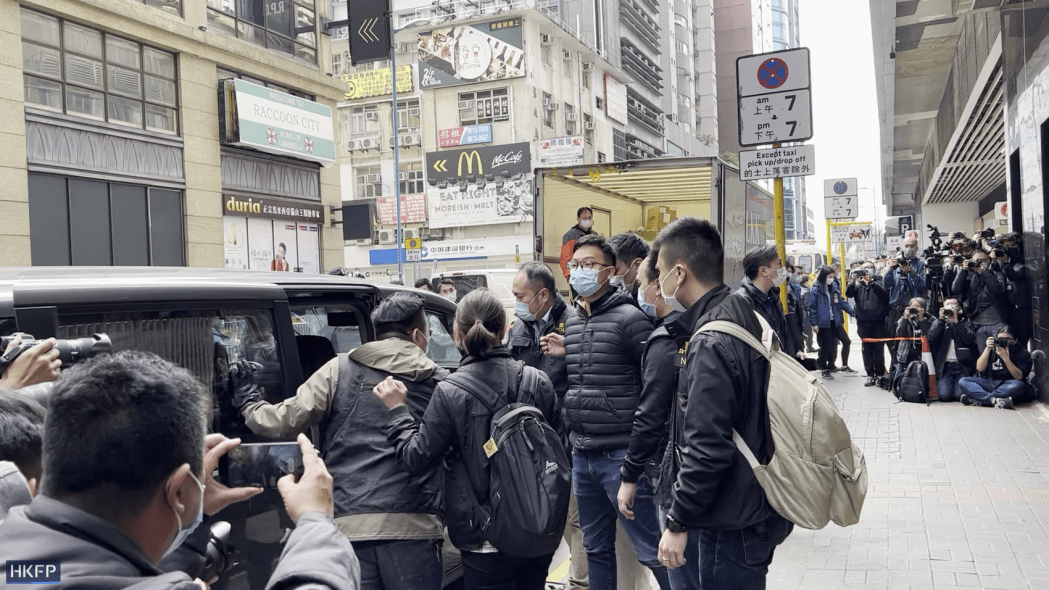Prosecutors have begun their closing arguments in the sedition trial against Hong Kong outlet Stand News and two of its former editors, arguing that there was no need to prove the editors’ seditious intent.

Chung Pui-kuen, former chief editor of Stand News, and Patrick Lam, former acting editor of the outlet, stand accused of conspiring to publish seditious publications along with the outlet’s parent company, Best Pencil Limited.
The trial, which began last October and was originally set to last for 20 days, was expecting to hear closing arguments from June 19 to 21.
However, the closing arguments were adjourned last Monday after lead prosecutor Laura Ng applied for 14 days’ sick leave due to a Covid infection. The judge ordered the trial to resume a week later as the defence opposed the lengthy adjournment.
Ng appeared in court as scheduled on Monday. “Covid caught me by surprise,” she said. The prosecutor coughed occasionally while delivering her arguments, adding that she would try to “last as long as [she] could,” saying she was still supposed to be on sick leave.
Seditious intent
Citing the judgement of a 1868 Irish case that read “sedition is a crime against society, nearly allied to that of treason,” Ng said it showed that the sedition law was deemed necessary 150 years ago, a time when “television, radio and the internet were yet to be invented.”
Online outlet Stand News had a greater influence on public opinion than traditional media, hence distributing seditious publications was more serious than committing an impulsive seditious act, she added.

The prosecution said it did not matter whether the two former chief editors had a seditious intent, instead the focus should be whether the materials were seditious, and whether the editors knew they were seditious.
Since one can only infer the seditious intention of publications, but not the intention of a person, making the editors’ seditious intent essential to the offence would make it “non-prosecutable,” Ng said.
Calling the sedition law “pre-emptive” in nature, the lead prosecutor also said the impact of Stand News’ articles “does not matter.” What was important, Ng added, was whether the editors had foreseen the impact of the articles ahead of publishing them.

Judge Kwok Wai-kin, who is handling the case, previously ruled that seditious intent was an essential element of the offence in the case against five Hong Kong speech therapists found guilty of publishing a series of “seditious” children’s books.
Kwok told the prosecution that they could still try to convince him otherwise.
‘Glory To Hong Kong’ injunction
The prosecution argued that the red lines surrounding press freedom were not as ambiguous as the defence had claimed, adding that the sedition law did not intend to outlaw all political speech, only that which was subversive.
Saying that most of the people arrested for sedition in recent years were “ordinary people,” Ng said a strong anti-government sentiment was still present in society. “Where is their source of information?” she asked, rhetorically.

Ng also said that most of the people who had been arrested for sedition had pleaded guilty, proving that they had committed the offence despite knowing where the red line was.
The prosecutor also cited the government’s recent application for a legal injunction to ban unlawful acts relating to the 2019 protest song Glory to Hong Kong, the lyrics of which contain a slogan that has been deemed a call for secession. Ng said that the song was still available on major online platforms alongside a surging number of comments quoting the 2019 protest slogan, “liberate Hong Kong.”
“Those people know what they have done,” the prosecutor said.
The seditious messages have indoctrinated a deeply rooted anti-government ideology in Hong Kong, resulting an unfavourable and disruptive society, Ng concluded.
Press freedom infringement
Ng also cited various legal cases to prove that the media was not exempted from legal liability.
She held that the sedition charge against Stand News did not infringe on press freedom in Hong Kong. “Even if there are infringements, the infringement is so insignificant as compare to the state security,” Ng added.

Citing the codes of ethics enacted by several local journalists’ associations, the prosecution said journalists would be protected by press freedom only if they have fulfilled their journalistic duties to maintain objectivity and accuracy. Otherwise, everyone involved, from the printer to the editors, should be held accountable, too.
The trial will continue on Tuesday.
Sedition is not covered by the Beijing-imposed national security law, which targets secession, subversion, collusion with foreign forces and terrorist acts and mandates up to life imprisonment. Those convicted under the sedition law – last amended in the 1970s when Hong Kong was still a British colony – face a maximum penalty of two years in prison.
Stand News
The non-profit digital news outlet Stand News ceased operations and deleted its website in December 2021 after its newsroom was raided by over 200 national security police officers. Seven people connected to the independent outlet were arrested on suspicion of conspiring to “publish seditious publications.” However, only ex-chief editor Chung, acting chief editor Lam and parent company Best Pencil (Hong Kong) Limited were charged.
Advocacy groups, the UN, and Western countries criticised the arrests as a sign of declining media freedoms, while then-security chief John Lee condemned “bad apples” who “polluted” press freedom following the raids.

The trial began in October 2022 with the court considering 17 allegedly seditious articles, including interviews, profiles, hard news reporting and opinion pieces. Sedition carries a maximum penalty of two years behind bars.
Support HKFP | Policies & Ethics | Error/typo? | Contact Us | Newsletter | Transparency & Annual Report | Apps
Help safeguard press freedom & keep HKFP free for all readers by supporting our team























